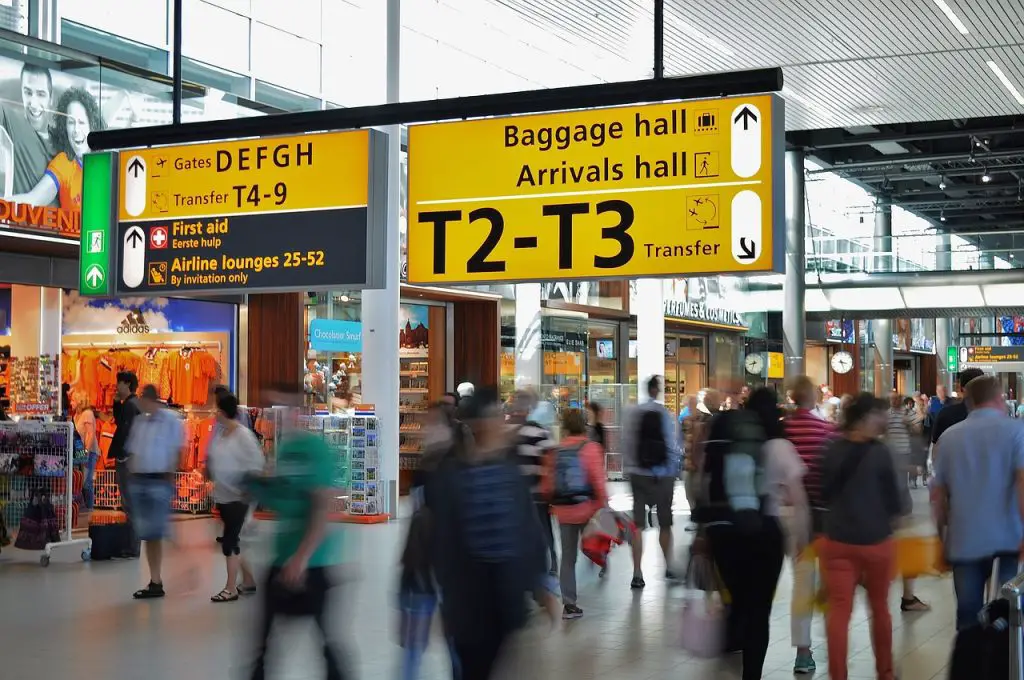DACA (Deferred Action for Childhood Arrivals) is a United States immigration policy that grants temporary protection to eligible undocumented individuals who were brought to the U.S. as children. Since its inception in 2012, DACA has provided eligible individuals with the opportunity to live and work in the U.S. without the constant fear of deportation. However, the policy’s restrictions on international travel can be confusing for DACA recipients. This comprehensive guide outlines the steps and precautions necessary for DACA recipients to navigate travel both within and outside the United States.
Understanding the Restrictions on Travel for DACA Recipients
DACA recipients are permitted to live, work, and study in the United States, but international travel is generally restricted. Traveling outside the U.S. without prior authorization may result in the loss of DACA status and could lead to deportation proceedings.
Travel Within the United States
For travel within the U.S., DACA recipients should follow these guidelines to ensure a smooth journey:
Carry Proof of Identity: Always carry a government-issued photo identification, such as a driver’s license or state identification card, as well as a valid Employment Authorization Document (EAD) to prove DACA status.
Know Your Rights: In the event of an encounter with immigration enforcement officers, remain calm, and be aware of your rights. You have the right to remain silent, and you may refuse to answer questions about your immigration status. You are also entitled to seek legal representation.
Avoid Border and Immigration Checkpoints: While traveling within the U.S., avoid areas close to international borders and immigration checkpoints, as these locations may pose an increased risk of encountering immigration enforcement officers.
Travel Outside the United States: Advance Parole
While international travel is generally restricted for DACA recipients, there is an exception called Advance Parole. Advance Parole is a permission granted by the United States Citizenship and Immigration Services (USCIS) that allows DACA recipients to travel outside the U.S. for specific purposes and return to the country without jeopardizing their DACA status.
Eligibility for Advance Parole: To be eligible for Advance Parole, DACA recipients must demonstrate that their travel is for one of the following purposes:
i. Humanitarian: Travel for emergency medical treatment, visiting a critically ill relative, or attending a funeral.
ii. Educational: Travel for academic research, study abroad programs, or attendance at academic conferences.
iii. Employment: Travel for work-related purposes, such as overseas assignments, client meetings, or professional conferences.
Applying for Advance Parole: To apply for Advance Parole, DACA recipients must complete the following steps:
i. Complete Form I-131, Application for Travel Document: Fill out this form accurately and provide all required supporting documentation.
ii. Gather Supporting Documents: Compile evidence to support the purpose of travel, such as medical records, academic program information, or an employment-related invitation.
iii. Submit the Application and Fee: Submit the completed Form I-131, supporting documents, and the required fee to USCIS. As of September 2021, the fee for Advance Parole is $575, but it is subject to change.
iv. Attend a Biometrics Appointment: After submitting the application, you may be required to attend a biometrics appointment to provide fingerprints and photographs.
v. Await the Decision: USCIS will review the application and notify you of their decision. Approval is not guaranteed, and processing times may vary.
c. Traveling with Advance Parole:
Carry the Advance Parole Document: If your application is approved, you will receive an Advance Parole document (Form I-512L). Always carry this document, along with your
valid passport and Employment Authorization Document (EAD), while traveling internationally.
ii. Adhere to the Travel Timeframe: Ensure that your travel aligns with the dates specified on your Advance Parole document. Returning to the U.S. after the authorized period may result in the loss of your DACA status and other immigration consequences.
iii. Be Prepared for Port of Entry Inspection: Upon returning to the U.S., be prepared to present your Advance Parole document, passport, and EAD to Customs and Border Protection (CBP) officers. Keep in mind that CBP officers have the discretion to admit or deny entry, even with a valid Advance Parole document.
iv. Reapply for DACA, If Necessary: If your DACA status is set to expire within a few months of your return, consider reapplying before traveling to ensure that your status remains valid throughout your trip.
Risks and Precautions Associated with International Travel for DACA Recipients
Traveling internationally as a DACA recipient, even with Advance Parole, carries inherent risks. It is essential to be aware of these risks and take necessary precautions:
Changes in Immigration Policy: U.S. immigration policies are subject to change, and any alterations while you are outside the country could impact your ability to return.
Denial of Entry: CBP officers have the discretion to deny entry to the United States, even if you possess a valid Advance Parole document. In such cases, you may be unable to return to the U.S., which could have severe consequences on your DACA status and life in the country.
Consult an Immigration Attorney: Before applying for Advance Parole or making international travel plans, consult with an experienced immigration attorney to assess your situation and discuss potential risks.
Stay Informed: Keep yourself updated on the latest immigration news and policy changes to make informed decisions about your travel plans.
Tips for a Successful Travel Experience as a DACA Recipient
Plan Ahead: Research your destination, local customs, and potential risks before embarking on your journey. This will help you be better prepared and ensure a smoother travel experience.
Maintain Legal Documents: Keep all your legal documents, such as your passport, EAD, and Advance Parole document, in a safe and secure location. Carry photocopies and digital copies as backups.
Communicate with Your Employer or School: If you are traveling for employment or educational purposes, keep your employer or academic institution informed of your travel plans and any potential delays or complications.
Stay Connected: Regularly communicate with your family, friends, or legal counsel while abroad to keep them informed of your whereabouts and any issues that may arise during your travels.
Know Your Rights: Familiarize yourself with your rights as a DACA recipient, both within and outside the United States, and be prepared to advocate for yourself if necessary.
Conclusion
Traveling as a DACA recipient can be challenging due to the various restrictions and risks involved. However, with careful planning, thorough research, and the support of an experienced immigration attorney, it is possible to navigate these obstacles and make the most of your travel experiences. By understanding the intricacies of Advance Parole and taking necessary precautions, DACA recipients can continue to expand their horizons and explore the world beyond the United States.







